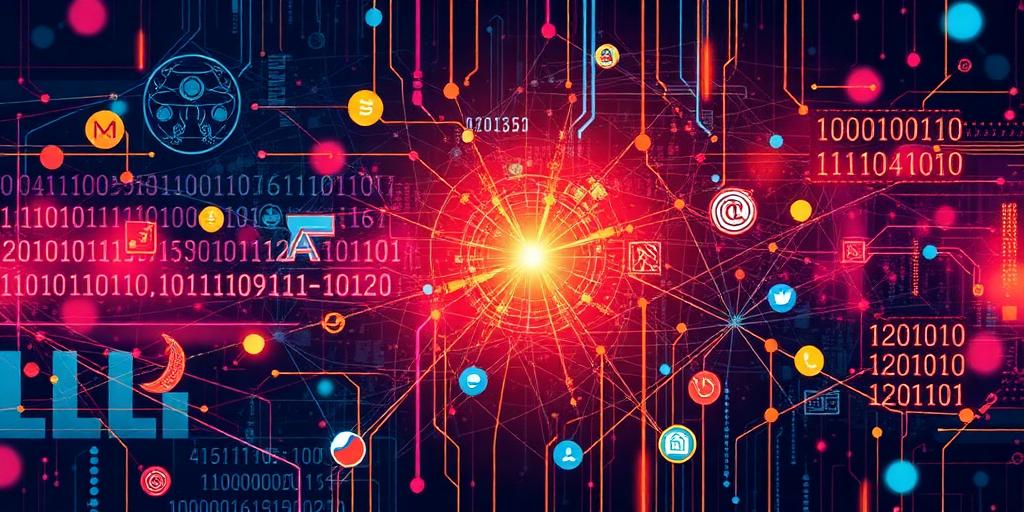The Cultural Implications of AI
Artificial intelligence (AI) is rapidly transforming our world, and its impact extends far beyond technological advancements. AI is increasingly shaping our cultures, influencing everything from how we communicate and create art to how we perceive ourselves and our place in society.
AI and the Transformation of Communication
AI-powered tools are changing how we communicate. Machine translation allows people from different linguistic backgrounds to connect, while AI-driven chatbots provide instant customer support. However, these advancements also raise concerns about the potential for miscommunication and the loss of cultural nuances in translation.
- Language Barriers: AI-driven translation tools are breaking down language barriers, allowing people from different linguistic backgrounds to communicate more easily. This can lead to greater cross-cultural understanding and collaboration.
- Chatbots and Customer Service: AI-powered chatbots are providing instant customer support, answering queries and resolving issues quickly and efficiently. However, the lack of human touch can sometimes lead to frustration and dissatisfaction.
- Misinformation and Deepfakes: AI can be used to create convincing fake videos and audio recordings, making it difficult to distinguish between what is real and what is not. This can have serious consequences for individuals, organizations, and even entire societies.
AI's Impact on Art and Creativity
AI is also influencing art and creativity. AI algorithms can generate music, paintings, and even literature. While some view this as a threat to human creativity, others see it as a new tool for artists to explore and create.
- AI-Generated Art: AI algorithms are capable of generating stunning works of art, often indistinguishable from those created by humans. This raises questions about the nature of creativity and the role of the artist.
- AI as a Creative Tool: Artists are increasingly using AI as a tool to enhance their creative process. AI can help artists generate new ideas, experiment with different styles, and even automate tedious tasks.
- Copyright and Ownership: The rise of AI-generated art raises complex questions about copyright and ownership. Who owns the rights to an AI-generated artwork? The programmer who created the algorithm? The user who provided the input? Or the AI itself?
Ethical Considerations and Cultural Values
As AI becomes more integrated into our lives, it is crucial to consider the ethical implications and cultural values that should guide its development and deployment. AI algorithms can perpetuate biases present in the data they are trained on, leading to unfair or discriminatory outcomes.
- Bias and Discrimination: AI algorithms can perpetuate biases present in the data they are trained on, leading to unfair or discriminatory outcomes. It is important to ensure that AI systems are trained on diverse and representative datasets.
- Privacy and Surveillance: AI-powered surveillance technologies can be used to track and monitor individuals, raising concerns about privacy and civil liberties. It is important to strike a balance between security and individual freedoms.
- Job Displacement: AI and automation have the potential to displace workers in a variety of industries. It is important to prepare for the future of work by investing in education and training programs that will help workers adapt to new roles.
Shaping the Future of AI and Culture
AI has the potential to profoundly impact our cultures, both positively and negatively. By understanding these implications, we can work to ensure that AI is developed and used in a way that promotes human flourishing and cultural diversity.
- Promoting Cultural Diversity: AI can be used to promote cultural diversity by providing access to information and resources from different cultures. It can also be used to translate languages and facilitate cross-cultural communication.
- Ensuring Ethical Development: It is important to ensure that AI systems are developed and used ethically, with respect for human rights and cultural values. This requires collaboration between researchers, policymakers, and the public.
- Investing in Education: Education is key to preparing for the future of AI. We need to invest in education programs that will teach people about AI and its implications, as well as provide them with the skills they need to succeed in the age of AI.
In conclusion, the cultural implications of AI are far-reaching and complex. By understanding these implications, we can work to shape the future of AI in a way that benefits all of humanity.









